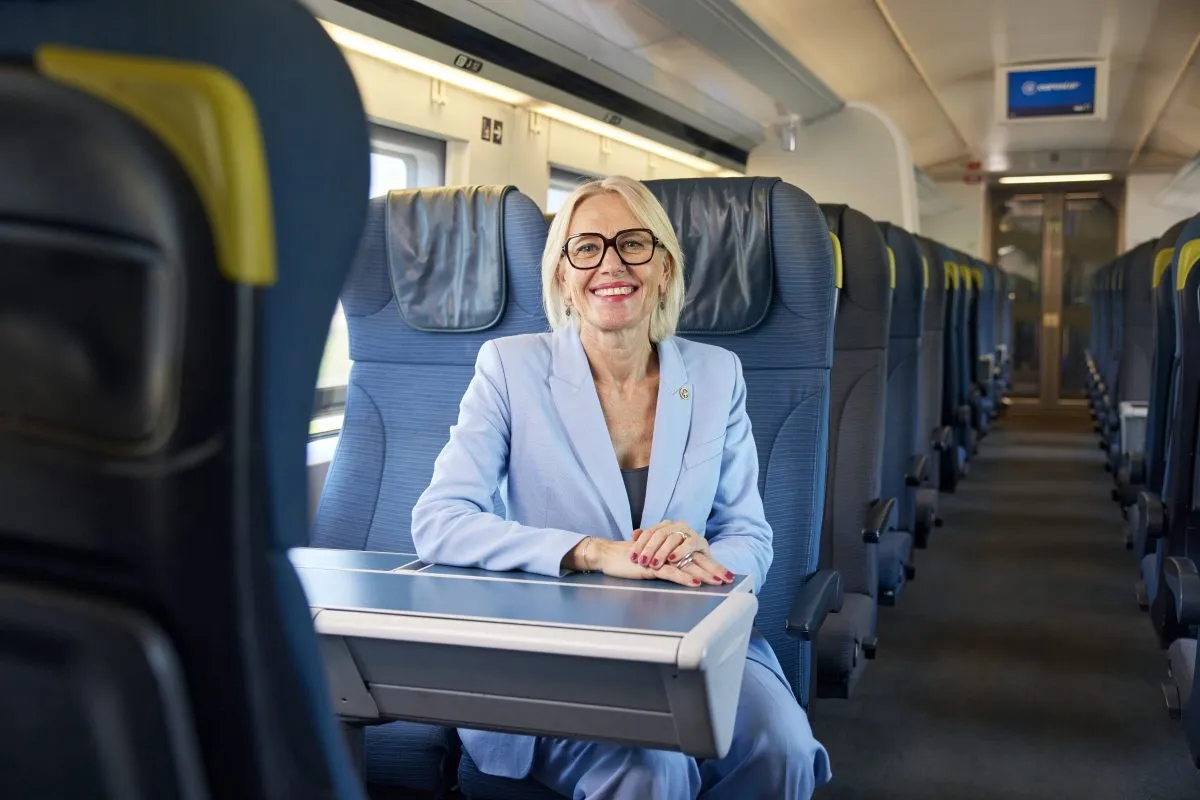How Gen AI Is Enhancing Guest and Employee Experiences in Hospitality

Skift Take
This sponsored content was created in collaboration with a Skift partner.
Imagine checking into a hotel where your room’s temperature, lighting, and even the scent of the air seem to be made just for you — and all without a single request. It might sound like magic, but it’s actually the invisible hand of generative AI at work. Once just a sci-fi fantasy, this technology is now quietly transforming the hospitality industry by streamlining operations, enhancing guest experiences, and improving employee engagement.
Demand for generative AI in the broader marketplace remains strong, with recent research showing that more than half of executives see its potential to fundamentally reshape business strategy, up from 39 percent in 2023. Additionally, a significant 80 percent of organizations, particularly larger ones, have increased their investment in generative AI since last year, and nearly a quarter have integrated it into some or most of their operations — a leap from just 6 percent in 2023.
Last month, we explored how AI-powered dynamic pricing models have revolutionized revenue management in the hospitality industry by leveraging real-time data to adjust prices based on demand, competitor pricing, and other factors. In this article, we examine how hospitality brands can fully leverage generative AI’s potential by adopting a holistic approach, integrating AI innovations across all facets of their business — from products and services to customer and employee experiences.
Personalizing Customer Experiences With AI
According to HospitalityNet, 78 percent of travelers prefer accommodations that offer personalized options, and many are willing to share their data to customize their stay.
“AI-driven data utilization has greatly enhanced personalization in hospitality by analyzing guest preferences, booking history, and behavior patterns,” said Kim Wilson, principal and client partner at Capgemini. “This allows hotels to offer tailored services and recommendations, such as personalized room settings, customized dining options, and targeted marketing campaigns.”
The result? Guests enjoy a more satisfying experience and a stronger sense of loyalty, as their unique needs and preferences are met with precision. Beyond data utilization, generative AI is being woven into guest journeys to deliver hyper-personalized experiences. For example, generative AI can suggest specific hotels during the booking process and recommend add-ons that match individual preferences. It can also craft customized itineraries based on a guest’s specific interests, suggest relevant activities, and even generate personalized welcome messages.
“This level of personalization enhances the overall guest experience, making their stay more memorable and tailored to their unique needs,” Wilson said.
In addition, generative AI is also reshaping hospitality products and services, enabling innovations like smart rooms and connected experiences. For example, AI can adjust room settings — such as lighting and temperature — based on guest preferences, while connected devices deliver seamless automation, raising the bar for guest comfort and convenience in luxury accommodations.
Transforming Employee Experiences and Improving Operations
Employees are essential to shaping customer experiences through the services they deliver, and a positive employee experience often leads to better business outcomes, including reduced turnover, higher productivity, and increased profitability. However, real transformation requires understanding the link between employee and customer experiences. New generative AI applications, such as AI-driven training platforms for upskilling and AI in workforce management, can help reduce employee stress and enhance efficiency.
“AI-driven training platforms are helping to upskill employees in the hospitality industry by providing personalized learning paths based on individual strengths and weaknesses,” Wilson said. “These platforms offer interactive and on-demand training modules, which reduce onboarding times and support continuous learning. As a result, employees become more proficient in their roles faster and can adapt to new technologies and processes more effectively.”
In workforce management, AI enhances scheduling and task coordination by analyzing booking patterns, employee availability, and workload. According to Wilson, this predictive approach to scheduling helps ensure adequate staffing levels, reducing employee stress, promoting better work-life balance, and allowing managers to efficiently allocate resources, leading to increased productivity and cost savings. For guests, it translates to consistently higher service quality, creating a win-win for both staff and customers.
Where Customer and Employee Experience Meet
AI-powered tools like chatbots and predictive maintenance systems are transforming hospitality by simultaneously enhancing guest experiences and streamlining operations. Chatbots respond instantly to guest inquiries, assist with bookings, and offer tailored recommendations, ensuring personalized and efficient customer service.
Predictive maintenance systems, on the other hand, monitor equipment health to foresee potential failures, allowing staff to address issues proactively. This not only minimizes downtime but also maintains a smooth operational flow, benefiting both guests, who enjoy uninterrupted services, and employees, who experience reduced stress and a more predictable work environment.
One of India’s largest online travel companies has deployed an AI-powered chatbot to streamline various booking processes, including international flights and hotels. AI-powered chatbots can provide real-time assistance and handle intricate queries about flight details, date changes, and ancillary services. They also help companies streamline operations.
Embracing AI With a Balanced Vision
Fully leveraging AI in hospitality requires a thoughtful approach—one that benefits guests and employees equally while fueling product and service innovation.
“As AI continues to evolve, some of the most promising future innovations in hospitality include predictive personalization, AI-driven inventory management, and sustainable practices,” Wilson said. “Businesses should balance AI’s benefits by focusing on both enhancing guest experiences and empowering employees. This can be achieved by using AI to automate routine tasks, allowing staff to focus on high-touch, personalized service, and by providing continuous training and development opportunities for employees.”
For more information about Capgemini’s approach to generative AI and hospitality transformation, click here.
This content was created collaboratively by Capgemini and Skift’s branded content studio, SkiftX.





